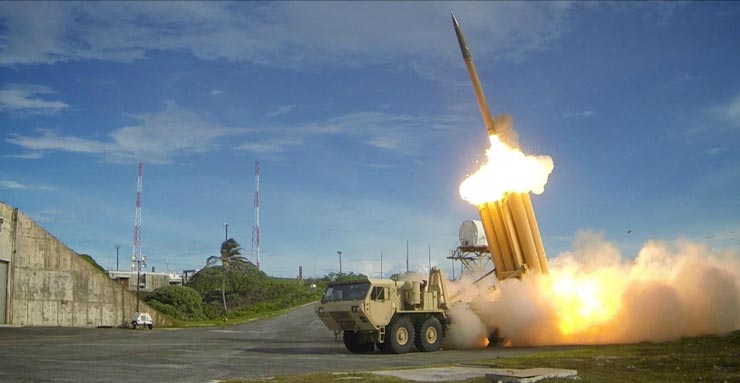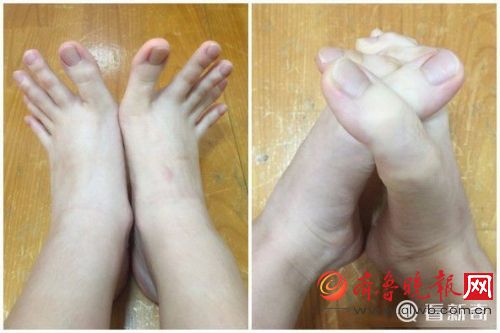


China, Russia say strategic balance to be upset by US-ROK move on missile defense system
China and Russia expressed strong opposition on Friday to the decision by the United States and the Republic of Korea to deploy an advanced missile defense system in the ROK, saying the system will destabilize the balance of security in the region.
Washington and Seoul said in a joint announcement that the Terminal High Altitude Area Defense system will be deployed to tackle the Democratic People's Republic of Korea's nuclear and missile threats.
Beijing said that it "strongly opposes" the move and urged the two nations to stop the deployment.
The deployment will "do nothing to help with denuclearization of the Korean Peninsula, and will harm regional peace and stability", the Foreign Ministry said in a statement on its website.
"It will seriously damage strategic security interests of countries in the region, including China, as well as the region's strategic balance."
The ministry had summoned the US and ROK ambassadors to lodge complaints, ministry spokesman Hong Lei said at a daily news briefing later in the day.
Russia also warned on Friday that the deployment of the anti-missile system would have "irreparable consequences".
The move "undermines the established strategic balance in the (region) and beyond", Russia's Foreign Ministry said in a statement.
These actions will "negatively affect global strategic stability", it said.
Seoul and Washington reportedly aim to deploy one THAAD battery by the end of next year. It would be operated by the allied forces under the operational control of the US Forces Korea commander.
A THAAD battery includes launchers, interceptors and radar and fire control systems, according to the Missile Defense Agency of the US Department of Defense.
Seoul reportedly would provide the site and infrastructure for the deployment, while Washington would pay for operation and maintenance.
Selection of the deployment site could be announced within weeks, Reuters reported, quoting an ROK Defense Ministry official.
Yang Yujun, spokesman for the Ministry of National Defense, said China will keep a close watch on actions by the US and ROK and take any necessary measures to safeguard national strategic security.
Lyu Chao, a researcher of Korean Peninsula studies at the Liaoning Academy of Social Sciences, said the THAAD system will not help counter potential attacks from Pyongyang, as the DPRK would not use middle- and long-range missiles in any attacks on the ROK because of its geographic proximity.
However, the system will pose "tangible threats" to China and Russia, Lyu said.
Su Hao, a professor of Asia-Pacific studies at China Foreign Affairs University, said the timing of announcing the deployment is designed to put China in a complicated security situation, since it will have to deal with the South China Sea and Korean Peninsula issues at the same time.
Agencies contributed to this story.
 Girl goes viral for finger-long toes
Girl goes viral for finger-long toes Five made-in-China hi-tech breakthroughs
Five made-in-China hi-tech breakthroughs HK-Zhuhai-Macao Bridge to open to traffic
HK-Zhuhai-Macao Bridge to open to traffic China opens its first combined transport service to Nepal
China opens its first combined transport service to Nepal Students take stylish bikini graduations photos
Students take stylish bikini graduations photos Charming dancing students pose for graduation photos
Charming dancing students pose for graduation photos Guizhou, Yunnan section of Shanghai-Kunming railway connected
Guizhou, Yunnan section of Shanghai-Kunming railway connected Naked models transformed into landscapes, birds and even DRAGONS by body painting artist
Naked models transformed into landscapes, birds and even DRAGONS by body painting artist World’s biggest cruise ship Harmony of the Seas to start maiden voyage
World’s biggest cruise ship Harmony of the Seas to start maiden voyage Top 20 hottest women in the world in 2014
Top 20 hottest women in the world in 2014 Top 10 hardest languages to learn
Top 10 hardest languages to learn 10 Chinese female stars with most beautiful faces
10 Chinese female stars with most beautiful faces China’s Top 10 Unique Bridges, Highways and Roads
China’s Top 10 Unique Bridges, Highways and Roads China’s floods to spike global commodity prices
China’s floods to spike global commodity prices Sea provocation by Philippines, US will meet firm countermeasure
Sea provocation by Philippines, US will meet firm countermeasure Animals rescued from S.China floods
Animals rescued from S.China floods Foreigners discuss the different ways of eating freshwater lobster and the culinary cultures behind them
Foreigners discuss the different ways of eating freshwater lobster and the culinary cultures behind themDay|Week